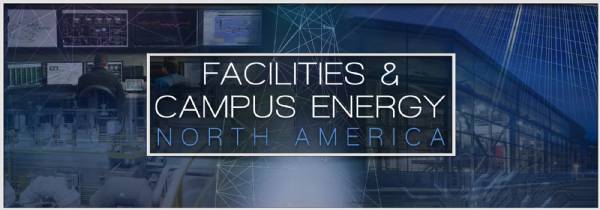"Improving Energy Resiliency, Efficiency and Sustainability for the Built Environment"
This senior level educational and networking Summit is designed to provide an interchange of knowledge and serve as a catalyst for collaboration across federal, state and private sector institutional, and commercial facility and campus energy stakeholders. The Summit will focus on both emerging business models and technical capabilities to support increased energy efficiencies, sustainability, reliability, and resiliency for the public and private sector built environment.
This is an in-person, socially distanced meeting. Seating will be limited and you can learn more about our onsite precautions and protocols here:
Current Health & Safety ProtocolsThe highly curated agenda offers two days of over 18 plenary sessions (no tracks!), 5 hours of dedicated networking and live technology and solution demonstrations onsite.
Summit Key Focus Areas to Include:
Business Models, Markets, and Financing:
- Adapting Energy Master Plans and Business Models to account for the impact of COVID-19: lessons learned
- Successful strategies for cost justifying and funding efficiency, resiliency and sustainability projects for your built environment including PACE, ESPCs, PPA, Energy- as-a- Service, public-private partnerships
- Successful operational strategies for the Integration of DERs: Best business practices for using solar and energy storage (batteries) to eliminate monthly peak demand charges throughout the year in addition to providing resilience during outages.
Technical Topics:
- Cyber Resiliency: Current threat landscape for facility and campus energy; how to build in cyber resilience, and what level of resilience to expect from your Control Systems, Energy Information Systems (EIS) and Building Automation Systems (BAS).
- Advanced Energy Management Systems and Data Analytics: Fueled by digitization and new technologies, facility and energy management systems have the ability to providedata driven, real time decision making tools to facility energy managers and engineers. Knowing what data sets to utilize and how to extract meaningful outcomes canunpack energy savings, improve resiliency and help transform facilities and campuses into smarter, automated systems.
- Distributed Energy Resources: Integrating battery storage, microgrids, PV, CHP, EV charging and wind into your energy portfolio through onsite generation or various PPA.
- Monitoring-Based Commissioning (MBCx): How far can the data take us? Using data analytics to automate and enhance the commissioning process.
- Fault Detection and Diagnostics: Using an intelligent predictive maintenance tool for detecting and predicting equipment failures including Automated Fault Detection and Diagnostics (AFDD).
- Future of Intelligent Facilities, Campuses and the National Energy Infrastructure: Near future state for supporting IoT; from sensors, management systems and standards to help you move forward. The future of Gird-Interactive Buildings and what energy managers need to prepare for.
Why Should you Attend the Summit:
The building sector has the highest potential for improved energy efficiency. Buildings use 36% of America's overall annual energy consumption, and 65% of the electricity demand... "(Source: EPA) and it is estimated that 5%-30% energy use in commercial buildings is wasted due to faults and errors in operations. (Source: LBNL 10.20357/B7V88H). With more than 350,000 energy- utilizing buildings the federal government is the nation's largest energy consumer. Energy used in buildings and facilities represents about 38% of the total site-delivered energy use of the federal government.
With rising concerns over energy security (both for general supply and specific needs of facilities), and the potential that buildup of greenhouse gases may be causing undesirable impacts on the global climate, it is essential to find ways to reduce load, increase efficiency, and utilize renewable energy resources in all types of facilities." (Source: the WBDG Sustainable Committee 03-08-2018)
Technical innovations in data management are allowing the most successful facilities managers and chief engineers to utilize advanced power monitoring, predictive analytics and more data based tools to increase equipment uptime and reduce energy consumption under tight staffing and budget constraints.
Project financing and Master Planning is accounting for the need to build in renewables, onsite generation and include overall flexibility to account for future unknown advancements in technologies and innovation. Here from leaders across the government and private sector on how they are financing, planning and managing their respective campus and facilities operations to take back these lessons learned and ideas to your own respective organization.
Exhibit & Sponsorship Information
The Summit provides exclusive opportunities including exhibit space, speaking roles, product demonstrations, and networking receptions
Download the Sponsorship Prospectus
Over 25 Speakers. Several Speakers Include:
- LTC Christopher W. Kiss, PhD, AIA, Deputy Chief of Design, Construction & Activation Facilities Division, Defense Health Agency, U.S. Department of Defense
- Mr. Randy Gaines, Senior Vice President Operations and NewOpenings Americas, Hilton
- Mr. Jason Christman, Vice President, Chief Product Security Officer, Johnson Controls
- Mr. Lee Dunfee, CEM, CDSM, LEEDAP,Managing Director, Engineering Operations, Cushman and Wakefield
- Mr. Kevin Kampschroer,Director, Office of Federal High Performance Buildingsand Chief Sustainability Officer, GSA
- Mr. Emmanuel Daniel, Director, Applied Innovation & Incubation -Smart Buildings & Campuses, Microsoft
- Dr. Steven Driver,CEM, CEA,Global Energy Program Director, Sanofi
- Mr. Douglas Hatcher, Director of Energy and Resource Management, Dept. of General Services, Pennsylvania
- Ms. Devan Tracy, P.E., CEM, LEED AP O+M, Smart Buildings Lead & Energy Analytics Lead, Program Manager Lockheed Martin Corporation Rotary and Mission Systems Division
- Mr. David Kang, P.E., CEM, Vice Chancellor for Infrastructure and Sustainability, University of Colorado Boulder
- Ms. Jennifer Groman,LEEDAP, Chief, Facilities Engineering, NASA
Please fill in your name and email to receive the Summit Agenda of this event.
Venue
Sunset Room at National Harbor Marina
137 National Plaza, 20745
National Harbor, Oxon Hill, MD
Parking:
Parking details will be provided to registrants one week before the event in the "Event Logistics" e-mail.
Hotel:
Event attendees are responsible for their own accommodations.
